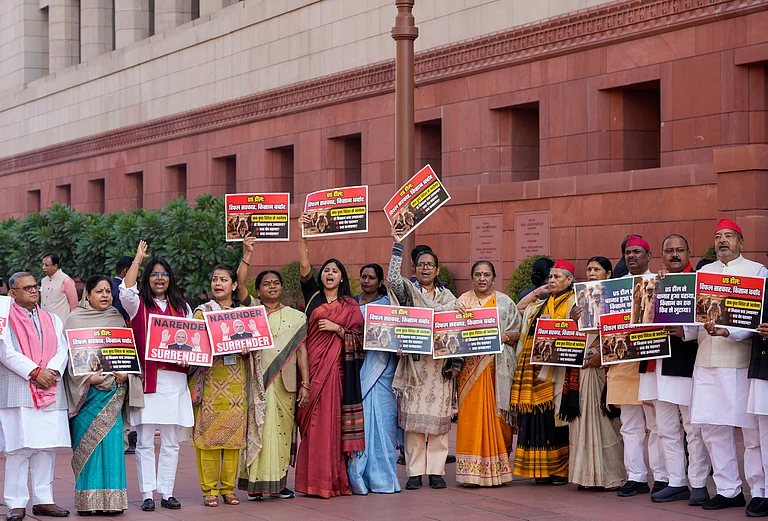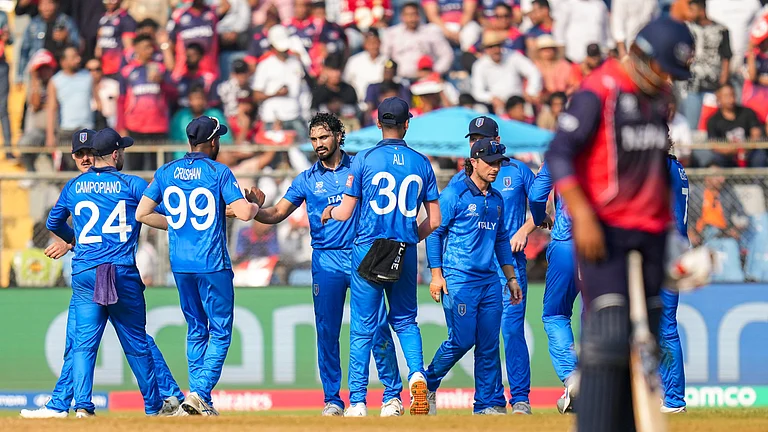Discharging activist Rehana Fathima, the Kerala High Court on Monday said that nudity is not always obscenity.
The order came in a case against Fathima over a video in which her children were seen painting her bare upper body. While she said it was a political statement, the prosecution said the act was morally corrupt and was obscene and indecent.
The Kerala HC also noted that women's bodies are sexualised in ways a man's body is not and women are often denied bodily autonomy.
Siding with Fathima, the court quashed the case and said that the sub-judice act was not sexual or sexually stimulating and the mere display of a naked upper body is not obscene.
What was the case against Rehana Fathima?
In June 2020, Rehana Fathima posted a video titled 'Body Art Politics'.
In the video, Fathima's son and daughter were seen painting her upper naked body.
Fathima said the purpose of the video was to de-sexualise women's boded. "If the half-nude body of a man is conceived as normal and not sexualised, why a female body is not treated in the same way?" she asked.
Speaking to Outlook earlier, Fathima said that a boy who becomes familiar with his mother’s nude body would learn that a female body is not just an object for desire.
A case under the Protection of Children from Sexual Offences (POCSO) was registered against her and she was even jailed for 13 days.
"The prosecution had also contended that the video was against the public notions of morality and would have a morally corruptive effect on the minds of people who watch it," reported PTI.
Earlier, the trial court rejected her petition to discharge her in the case. The Kerala High Court eventually discharged her.
What did the Kerala High Court say?
In a series of observations, while discharging Rehana Fathima, the Kerala High Court highlighted how women's bodies are sexualised and how women don't have the same bodily autonomy that men have.
The Kerala High Court also said that nudity is not necessarily obscenity and that what might be immoral for some is not necessarily illegal and cannot be subject to legal penalty.
The court said that "it was not possible to anyone to infer that her children were used for any real or simulated sexual acts and that too for sexual gratification" and that "she only allowed her body to be used as a canvas for her children to paint on."
The HC also said it was "harsh" to term such an "innocent artistic expression" as using a child sexually.
"There is nothing to show that the children were used for pornography. There is no hint of sexuality in the video. Painting on the naked upper body of a person, whether a man or a woman, cannot be stated to be a sexually explicit act," PTI reported, citing the court order.
The HC also ruled that bodily autonomy is a fundamental right under the Constitution of India.
"The right of a woman to make autonomous decisions about her body is at the very core of her fundamental right to equality and privacy. It also falls within the realm of personal liberty guaranteed by Article 21 of the Constitution...Every individual is entitled to the autonomy of his/her body - this is not selective on gender. But we often find this right is diluted or denied to the fairer sex. The women are bullied, discriminated against, isolated, and prosecuted for making choices about their bodies and lives, the court said," said the HC.
The High Court said that "nudity and obscenity are not always synonymous". The PTI reported the court as saying that "it is wrong to classify nudity as essentially obscene or even indecent or immoral".
Rejecting the Opposition's charge that the video was morally corruptive and thus subject to public order exception of freedom of expression, the court said that "morality and criminality are not coextensive". The HC further said noted that a relationship as "pious" as that of mother and child was being put under the scanner.
The PTI reported the court as saying, "A mother-child relationship is one of the earth's most solemn and pious relationships. There is no bond stronger and more sincere than the one between a mother and her child.
"No doubt, the prosecution of the petitioner (Fathima) will have torture and adverse effect on the children. Hence, in the best interest of the victims also, the prosecution cannot be allowed to be continued."
Who is Rehana Fathima?
Rehana Fathima is a women's rights activist, model, and body artist.
In 2018, Fathima became famous as the first woman to make an attempt at entering the Sabarimala Shrine in Kerala which, prior to the Supreme Court's order on the subject, did not allow women of menstruating ages to enter.
"Dancers in ‘tiger dance’ —locally known as ‘Pulikkali’— paint their body like that of a tiger. Rehna’s performance with a group of men with body painted like a tiger’s skin was discussed widely both positively and negatively. All her attempts to challenge the patriarchal social order invited widespread criticism — though there were a few who appreciated her for what she was doing," noted Outlook's Shahina K in an earlier piece on Fathima.
In 2016, Fathima was part of the agitation against the rape of a student in Kochi. The same year, she came to the fore when she was part of a 'tiger dance' performance that has been a men-only domain.
Prior to that, Fathima was an active participant in the ‘Kiss of Love’ protest in 2014, a movement against moral policing. She was one among the many who were taken into custody for participating in the Kiss of Love protest.


























